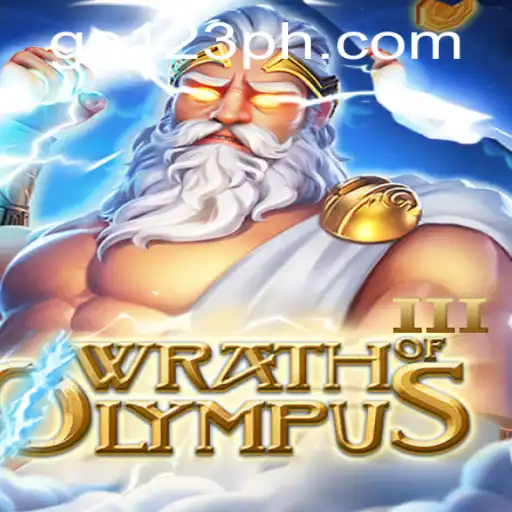
go123 - Explore the Epic Quest in Wrath of Olympus III
Dive into the captivating world of Wrath of Olympus III where characters embark on epic quests under the turmoil of ancient Greek deities.

Embark on an Epic Quest with Wrath of Olympus III
In a realm where the divine intertwines with the mortal, Wrath of Olympus III emerges as a game that promises an immersive experience mixing mythology with exhilarating gameplay. This latest installment of the series, available on leading gaming platforms, enhances its reputation by offering players intricate storylines embellished with ancient lore. Within this vibrant digital landscape, gamers encounter the brilliance and fury of Greek deities, offering a journey filled with challenges and triumphs.
Introduction to Wrath of Olympus III
Wrath of Olympus III invites players to step into the sandals of mythological heroes, embarking on tasks that challenge intellect and valor. Engaging with a narrative rooted in ancient Antiquity, players navigate a world embellished by beautifully rendered graphics that bring to life the artistry of the epoch. Each frame within the game acts as a testament to developers' commitment to recreating an authentic ancient world, capturing the imagination of players worldwide.
The game follows the quest of a mortal hero chosen by the gods themselves. Tasked with restoring order amidst divine chaos, the hero must confront powerful Olympian adversaries such as the wrathful Ares and cunning Hades. The narrative not only emphasizes epic battles but also delves deep into personal stories, exploration, and the overcoming of omnipotent challenges.
Game Description
Wrath of Olympus III stands out by merging sophisticated gameplay mechanics with feature-rich environments. Players will find themselves engrossed in battles designed to test strategic acumen and skillful maneuvers. Throughout the journey, historical authenticity is coupled with a creative twist, introducing an ever-expanding tapestry of quests and characters.
The vibrant landscapes players find themselves exploring range from the bustling city of Athens to the desolate yet awe-inspiring peaks of Mount Olympus. Each location serves as a quest hub where myriad problems demand solving. Furthermore, the integration of dialogue choices within questlines influences game outcomes, encouraging players to make decisions that could alter the world’s balance.
Core Gameplay and Rules
Players begin their journey by customizing their hero, selecting attributes that will influence how they navigate the volatile world of gods and men. From there, they follow a loosely linear storyline allowing for individual exploration and interaction with non-playable characters (NPCs). These NPCs may offer insights, provide essential items, or propose side quests that enrich the game's mythological depth.
Combat is central to Wrath of Olympus III, designed around a dynamic system that permits flexibility and adaptation during battles. Players wield divine weapons, harnessing the powers provided by allies among the deities to execute spectacular abilities. Success in combat hinges on a balance of tactical decision-making and reaction time, encouraging players to master both their character and the limitations of enemy patterns.
Integral to the experience is the adherence to a set of guiding rules that promote strategic gameplay. Players must manage a finite amount of energy and health, using these resources wisely across various challenges. Consuming available resources allows players to restore these metrics, while certain sacred abundances grant temporary invulnerability or enhanced powers, key to turning the tide in strenuous battles.
Current Events and Their Influence
In the context of the current gaming landscape, Wrath of Olympus III finds itself at an intersection where players increasingly seek narratives that resonate on a deeper level. The global demand for more meaningful storylines that reflect current societal themes—such as the clash of traditions versus modernity—imbue the game with a relevant backdrop against which players can project their own experiences. The notion of gods intervening in mortal affairs parallels contemporary discussions about power dynamics and influence in our societies.
These contemporary parallels are woven into subtle layers of the narrative, challenging players to question the nature of justice and righteousness in their pursuit of victory. The inclusion of multiplayer options supports cooperative play, allowing gamers to join forces in tackling the toughest mythological monsters—a nod towards the increasing popularity of social gaming experiences.
As the gaming community continues to expand and evolve, the potential for such games to entertain while provoking thought highlights the silent revolution in interactive media. Players engaging with Wrath of Olympus III might find a thrilling escape, yet as they navigate tumultuous paths of fate and free will, they are also contributing to a living mythology, one that reflects both ancient traditions and modern permutations on storytelling.


GOLD VIP
Minimum deposit: ₱1,500
- ✅ 150% bonus on all deposits
- ✅ Priority withdrawal in 1 minute
- ✅ 10% cashback weekly
- ✅ VIP support 24/7
- ✅ Higher betting limits
PLATINUM VIP
Minimum deposit: ₱6,000
- ✅ 200% bonus + all Gold benefits
- ✅ Instant withdrawal 24/7
- ✅ 15% cashback weekly
- ✅ Exclusive VIP table in casino
- ✅ Special event invitations
DIAMOND VIP
Minimum deposit: ₱30,000
- ✅ 300% bonus + all previous benefits
- ✅ Dedicated personal manager
- ✅ 20% cashback weekly
- ✅ Unlimited withdrawal limits
- ✅ Exclusive trips and gifts
🚀 Register NOW and Get ₱15,000 Bonus!
⏰ LIMITED TIME OFFER! Join over 1.2 million players who have already discovered why go123 is the #1 betting platform in the Philippines. Registration in 30 seconds, first withdrawal in 2 minutes!
💬 What our players say
"Best platform I've ever used! GCash withdrawal in 2 minutes, amazing support!"
- Carlos M., Manila ⭐⭐⭐⭐⭐
"Won ₱45,000 on Gates of Olympus! They paid everything correctly via GCash."
- Ana L., Cebu ⭐⭐⭐⭐⭐
"VIP system is amazing! I have a personal manager and cashback every week."
- Roberto S., Davao ⭐⭐⭐⭐⭐
PAGCOR License
SSL 256-bit
eCOGRA
BSP Approved





